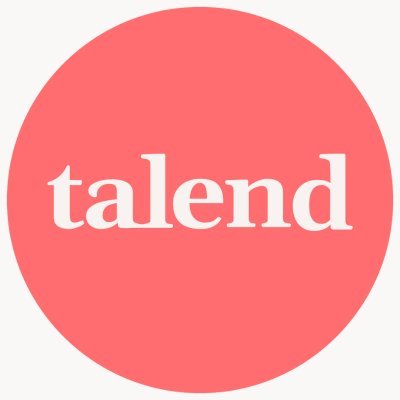About Airbyte
Airbyte is the open standard in data movement, and can be deployed self-hosted, cloud, or hybrid. Airbyte is used by 18% of the F500 and has over 25,000 community members.
About IBM Datastage
IBM DataStage is a legacy enterprise ETL platform part of IBM's DataOps suite. Using traditional licensing models and requiring significant infrastructure, DataStage provides powerful capabilities but with high complexity and cost.
Limitations of Using IBM Datastage
Legacy Architecture
IBM DataStage's architecture dates back decades, built on technology stacks that predate cloud computing and modern data practices. The platform requires heavy infrastructure with dedicated servers, complex installation procedures, and substantial hardware resources even for basic operations. This older technology stack struggles to integrate with modern cloud services, containerized deployments, and microservices architectures. Organizations find themselves maintaining legacy infrastructure solely to support DataStage, increasing operational complexity and preventing adoption of modern DevOps practices.
High Costs
The total cost of ownership for DataStage extends far beyond expensive enterprise licensing fees. Organizations must invest in substantial hardware infrastructure, as DataStage's resource requirements are significant even for moderate workloads. Specialized DataStage administrators command premium salaries due to the platform's complexity and declining talent pool. Maintenance costs include regular upgrades, patch management, and the overhead of managing on-premise infrastructure. Many organizations discover that DataStage's costs are only justifiable for the very largest data processing workloads, making it economically unfeasible for modern, agile data teams.
Limited Agility
DataStage's heavyweight architecture and complex change management processes make it poorly suited for agile data practices. Simple changes can require lengthy deployment procedures, testing cycles, and approval processes inherited from legacy IT governance. The platform is slow to adopt support for new data sources, particularly modern SaaS applications and cloud services. The complex development environment and steep learning curve mean new team members require extensive training before becoming productive. This lack of agility often forces organizations to maintain DataStage for legacy workloads while implementing modern solutions for new requirements, creating a complex dual-architecture scenario.
Benefits of using Airbyte
Control your data
Airbyte gives you complete control over your data infrastructure with flexible deployment options that adapt to your security and compliance requirements. Whether you need to keep sensitive data on-premise for sovereignty requirements, leverage cloud scalability, or implement a hybrid approach, Airbyte's single codebase architecture ensures consistent functionality across all deployment models. This flexibility helps organizations meet strict compliance standards like GDPR and HIPAA while maintaining full ownership of their data pipeline infrastructure.
Build without limits
With over 600 pre-built connectors and an AI-powered connector builder, Airbyte removes the traditional barriers to data integration. The platform's extensive connector library covers everything from modern SaaS applications to legacy databases and unstructured data sources. When you need a custom connector, the no-code Connector Builder and low-code CDK enable rapid development in hours instead of weeks. This is amplified by a vibrant community of over 1000 contributors who continuously expand the ecosystem, ensuring you're never blocked by connector availability.
Scale with confidence
Airbyte's predictable capacity-based pricing model means you can scale your data operations without worrying about surprise bills or budget overruns. Unlike consumption-based models that penalize growth, Airbyte's transparent pricing grows predictably with your infrastructure needs. Combined with enterprise-grade reliability featuring 99.9% uptime SLAs and the freedom to choose between deployment options, organizations can confidently scale their data operations without vendor lock-in concerns.
FAQs
1. How do Airbyte and IBM DataStage differ in their overall approach to data integration?
Airbyte is a modern, open-source ELT platform built for cloud-native stacks, with 600+ connectors into warehouses like Snowflake, BigQuery, and Databricks. It emphasizes flexibility, scalability, and transparency for analytics and AI use cases. IBM DataStage is a legacy ETL tool rooted in on-prem, proprietary IBM environments. While powerful for traditional transformations, it lacks the agility and openness of Airbyte’s ecosystem.
2. Which platform—Airbyte or IBM DataStage—offers more flexibility for deployment and modernization?
Airbyte offers far more deployment flexibility, supporting self-hosted, cloud, and hybrid models, including Airbyte Flex for in-infra processing and compliance. Its open architecture plugs easily into tools like dbt, Airflow, and Dagster, making modernization smoother and faster. IBM DataStage is more tightly bound to IBM-managed environments, which slows cloud and hybrid adoption. For teams modernizing to cloud or hybrid, Airbyte’s modular design avoids vendor lock-in and accelerates innovation.
3. How do Airbyte and IBM DataStage compare in cost and scalability?
Airbyte is generally much more cost-effective, with capacity-based pricing and a free, self-hostable open-source version. It scales horizontally on existing infrastructure or Kubernetes, keeping overhead low for high-throughput workloads. IBM DataStage relies on complex enterprise licensing and added maintenance and infrastructure costs. As data volumes grow, scaling DataStage becomes expensive, while Airbyte keeps total cost of ownership predictable and lower.
4. Which is more developer-friendly—Airbyte or IBM DataStage?
Airbyte is far more developer-friendly, offering open APIs, a Connector Development Kit, and full source-code access for rapid connector customization. It fits naturally into modern engineering workflows with CI/CD, dbt, and orchestration tools. IBM DataStage depends on a traditional GUI and often requires specialized IBM skills to extend or debug. Agile teams that value speed and control will move faster with Airbyte’s open-source, developer-first approach.
5. When should a data team choose Airbyte over IBM DataStage?
Teams should choose Airbyte when they need modern, scalable ELT pipelines that work across cloud, hybrid, and on-prem environments. Its 600+ connectors, hybrid deployment options, and capacity-based pricing make it ideal for modernizing legacy stacks and powering analytics and AI. IBM DataStage is better suited to legacy, on-prem setups but lacks the openness and speed required by today’s data-driven enterprises. Airbyte lets teams innovate faster, stay compliant, and avoid the high costs and constraints of legacy ETL suites.




%201.svg)

%201.svg)



































.png)




.png)
.png)
.png)
.png)
.png)
.png)
.png)
.png)
.png)
.png)
.png)
.png)
.png)